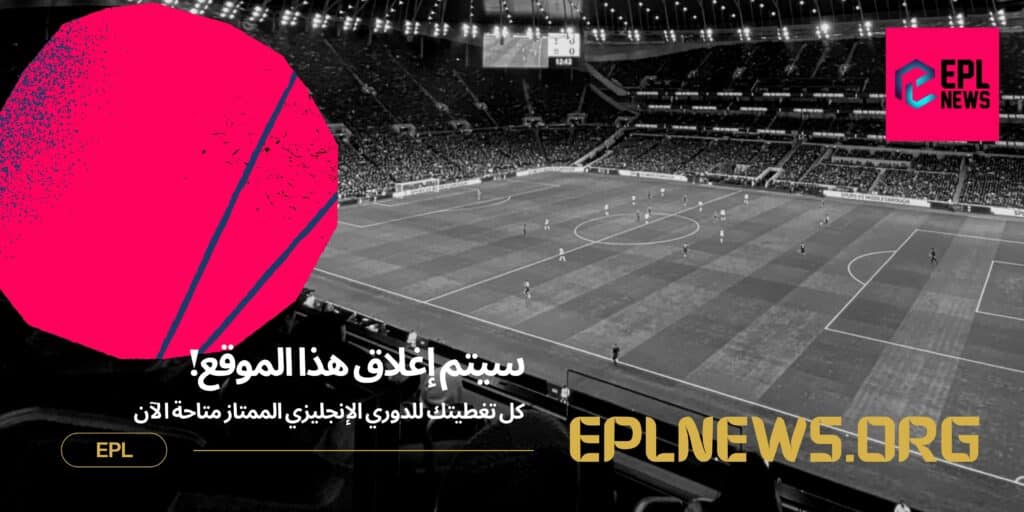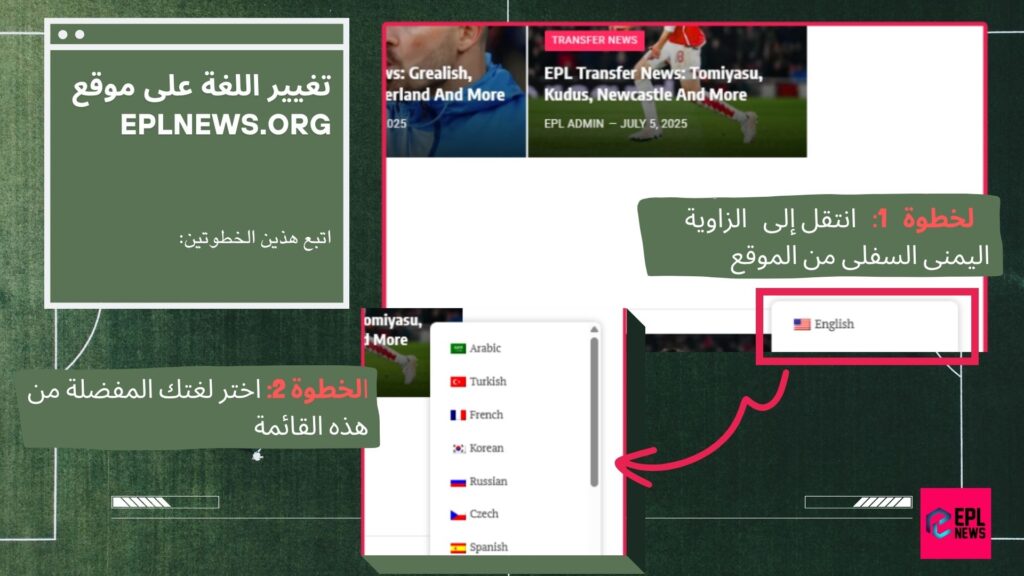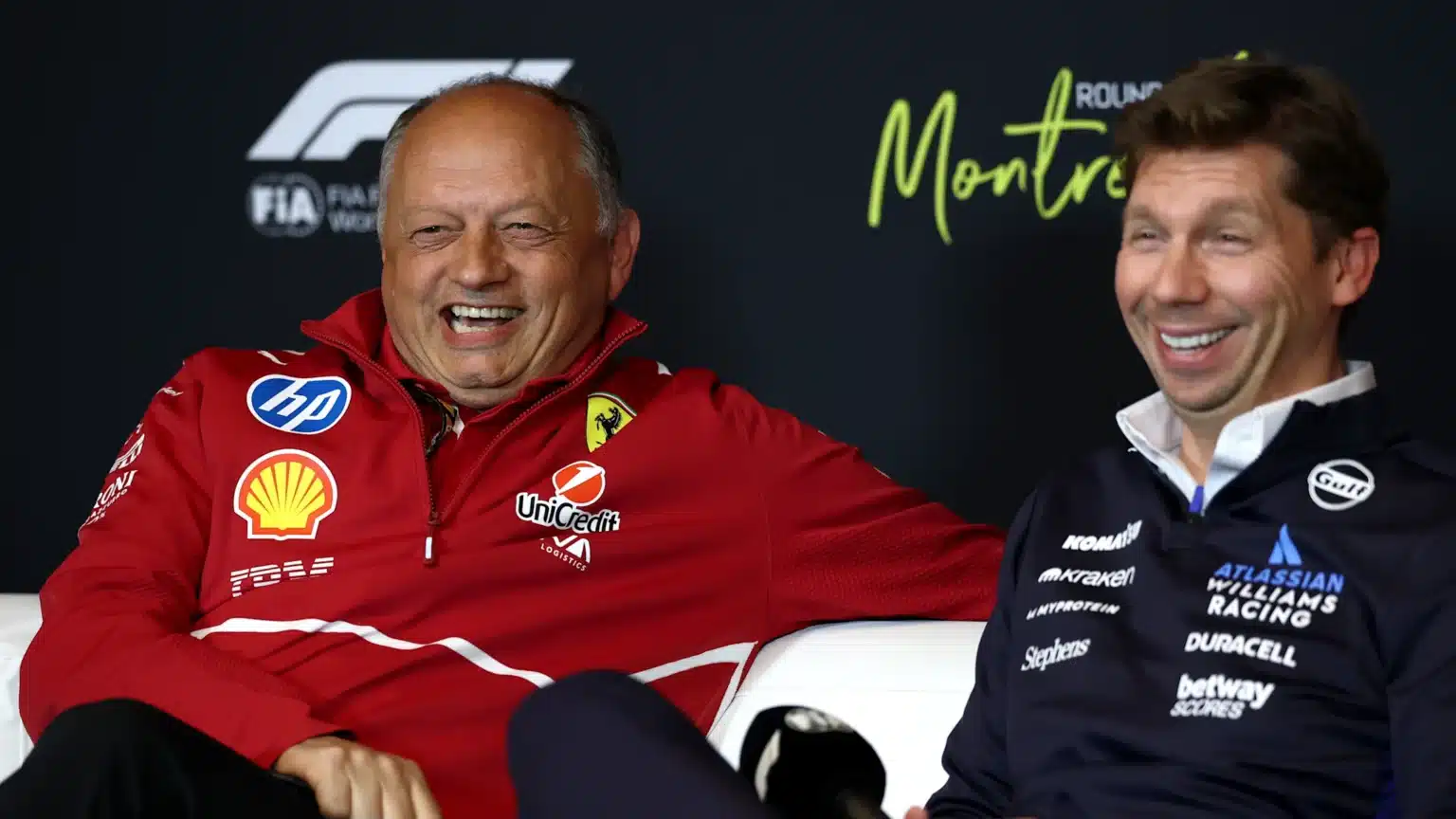Q: (Luke Smith – The Athletic) Fréd, just picking up on that. Is there a full understanding in terms of where Ferrari has left points on the table so far this season and gone wrong in some places? Because other areas like pit stops, for example, that was always traditionally a weak point for the team, and now you’ve become the pacesetter. So how do you kind of balance that in terms of analysing where you’ve gone wrong and where you’ve gone right?
FV: Yeah. But it’s not a race of a pit stop. At the end of the day, it’s good to have a good pit stop because it’s part of the—it’s not part of the success, but it could be part of the issues. And honestly, if you compare with the beginning of ’23–’24, we did a good step forward on operations: strategy, pit stop, even reliability. But still, we are behind McLaren. At the end, the target is not to do a good job. The target is to do a better job than the others. And it’s the same for 2026. When you’re asking us, “Where are you?”—we are improving, but the target is to improve faster than the others. Overall, I think it’s a long process, and it’s why I don’t want to come back on the part of the discussion. But it’s where, each time that you have a kind of distraction or issue internally, you are losing a little bit of focus during the season. And this is our job to recover. I have the feeling that sometimes teams in the UK are a bit more on their own and a bit more focused on what they are doing. But, you know, the best example for me is McLaren. In 2022–23, they had a very harsh season. They were at the back, but they were focused. They worked on their own, and they improved step by step. And it’s, I think, what every single team wants to do. I have huge respect for the ten teams on the grid—I know all of them. They are competitors, they are racers. And when we are not doing well, we are aware. It means we are trying to put everything together, we are pushing, and the most important is to be able to do your own job. That’s sometimes where we are struggling a little bit.
Q: (Mark Mann-Bryans – Autosport) Another one for Fred, please. You’ve obviously got in Lewis a seven-time world champion and Charles, someone who’s been ingrained in the team for years now. Does that give you the confidence that their performance and their mentality won’t be affected by talk of your future or things around the team?
FV: It’s a good example to speak about Charles. I think Charles has a long-term contract with us. Every single interview from the beginning of the season, he’s telling that he wants to stay with Ferrari. He wants to win with Ferrari. His future is with Ferrari. But every single Monday, we have an article telling that “Charles will go next year,” “Charles will…” At one stage, I don’t know what we have to do. I’m sorry—I can’t repeat every single weekend the same things. But it is like it is. Now, with Lewis and Charles, I think we have a good relationship altogether. We have a clear target. We know that we have to work. We know that we have to push. But the mood in the team is very good. And that’s the basis if you want to recover and to win. Everything is there. Everything is on the table to do a good job, and altogether, we are working well.
Q: (Adam Cooper – Adam Cooper F1) I’m sorry, Fréd again. Sunday night in Barcelona, you told us that both drivers had issues and you wouldn’t elaborate. Yesterday, Lewis said he’d been told not to talk about it. Charles wouldn’t talk. Why all the mystery?
FV: When I’m telling you in the press conference that I won’t disclose, don’t come back ten minutes later to try to understand. And the Friday after to try to understand—I won’t disclose what’s happened. It is like it is. Full stop.
Q: Okay? Isn’t it better just—given the situation you guys are in—isn’t it better just to give fans and the media at least some idea of what the issues are? You don’t have to go into detail.
FV: Ah, we put the front wheel at the rear.
Q: (Luke Smith – The Athletic) For Fréd and for James this time. We got a media screening of the F1 movie last night and a couple of little cameos in there for you. Fréd, you actually had a cameo with Tom in the press conference. How was it filming those scenes and being part of the Hollywood world?
FV: I’m looking for a new job!
Q: What were your thoughts on being part of it? What was that process like?
FV: I only had to say two words. It was not a huge experience, but it went pretty well.
Q: And Luke, do you want James’s thoughts on the movie as well?
JV: The thing that impressed me was Fred’s two words, of all.
FV: And one was Italian – “niente.”
JV: But it was—probably more—that they integrated with us as though they were the team here. You have to remember, for a lot of the scenes, they only had one shot—one take—and that was it. We’re not going to go back to the start of the race and do it again. They just had to pick up their imagery. And that’s what impressed me with it. If you get involved in film, you realize they do about 40 takes. Even when we do our own work, we do 40 takes. And they didn’t. They got it done on time and did it right. It’s quite impressive.
Q: (Rodrigo França – Car Magazine Brazil) Following up on that question for the three of you. Do you think the F1 movie can bring more fans, as Drive to Survive has also reached a new audience for Formula 1?
AK: Yeah. I think so. Because, I think for lots of people who are just having a passing interest in motorsport, I think that film is really immersive. I think onboard footage—we look at it all the time—but for people who don’t watch it all the time, I think it’s really quite immersive. And then racing scenes with the real footage and CGI, etc.—it’s brilliantly merged together. So yeah, I think so. I think it’s pretty exciting for fans who don’t see this all the time.
FV: I think you can do the parallel with Netflix—that we will attract a new fan base with the movie. And perhaps then, in the future, they will watch the races just because they watched the movie before. And it’s also the target of this story.
JV: Yeah. Same thing. I’m confident it will attract a new fan base to the sport because it is authentic to Formula 1, but it’s a Hollywood take on it. But it will involve a different audience—especially, I think, in the US. And that’s exactly the whole purpose behind it: to bring eyeballs to our sport that I love.
Q: (Chris Medland – Racer) It’s actually for James and Ayao. On the topic of the day with what Fréd was saying about Ferrari. You’ve both been parts of teams in different roles before becoming team principals. When there’s speculation and media reporting that is negative about the team, how much does it impact you and the work you’re doing internally, and the atmosphere within the team, in the way Fréd was saying it does for Ferrari?
JV: I think the thing I’d put here, of all—I’ve known Fréd for probably 20 years or so. Fred is an incredibly good leader. And what you see him doing here in front of you today is he’s shouldering all of this because that’s what we do, and that’s our job to do it. And his point is actually valid. For me personally, it’s never caused me grief or upset. But what I’ve seen it do is destroy individuals as a result of one line that’s written by someone who may or may not know any details behind it. So answering your question, it shows you what the power of words are—in a positive and negative sense. But what I would say is I have all the respect in the world for Fréd and what he is doing in Ferrari, because they are competitive and they are moving forward. Simple as that.
AK: Yeah. I guess it’s part of F1. These rumours—people like to talk about those things when they haven’t got anything else to write about. So yeah, it does affect the team to a certain extent. But I think when the team leader is there—I’ve been with two different teams previously that had really good leaders—and when communication internally is clear, then we have trust in them. So yes, outside people can say whatever they want. I think true teams—they will be fine.
Q: (Daniel Valente – The Score) Another question for Fréd. So yesterday, Lewis and Charles were both very outspoken about their support for you. I just want to know—can you talk about how much or what that means to you to have that kind of public backing from both your drivers?
FV: Their reaction—I can understand their reaction because we are working on a day-to-day basis. We are working to reach a target, and we are working all together. And it’s not about me. Again, I knew before. I knew perfectly that I’m exposed. The issue is not the team principal because we are fully aware. I think the issue in this kind of situation is more the people of the team. And this is affecting me much more than my own position. You know what I mean? At one stage, we have to consider that the people who are in every single team on the grid—they are all working very hard. They are putting in all of their energy. Sometimes they are making sacrifices for their family and so on. And to put names like this on the paper—I think it’s very, very harsh. You have to understand that when a journalist is saying “Ferrari will recruit this name for this position,” there is someone already in that position. And Sunday evening, the guy says, “Okay, tomorrow morning, I won’t have a job anymore because if what is in the newspaper is true, I will have someone in my position.” And it’s the same for all the people working under that person. And we are in this situation on a daily basis now in Italy. And too much is too much. Honestly, if they want to be successful, at one stage, we also have to be able to work in a clean environment. And we are not in that situation so far.
Q: Fréd, is there anything you can do as the team principal to protect the team?
FV: Yeah. I’m going on Monday morning to see the guys and to say, “Guys, it’s not true.” But I’m not a fireman at the end of the day. It’s just a matter of respect. We are fully open with them. That means if someone has to ask a question about recruitment or whatever—either I will say no, I can’t speak, or yes. In this case, I would have said no way, because the person that we were speaking about last year—I had to Google the name of the guy to see the face of the guys. We are at this point now—that they are able to spread a rumour about someone I never met in my life. And consider that we are speaking about people. We are not speaking about things. And I think everybody needs to have a bit of respect.
Q: (Alexis Bélanger-Champagne – La Presse Canadienne) Might be a bit of a reach, but the F1 Canadian Grand Prix will be moved to late May next year. I’m just curious—do you expect any difference, any impact? It might be just a few degrees colder, but besides that, could that change anything for the teams, with this change in calendar?
AK: I think even when it’s the same time of year here, the weather is quite unstable. You can have a dry race, wet race, really changeable conditions. So I’m sure teams are fine with it being a different time of year. I don’t think it’s going to be drastically different. But I think it’s very good for everyone to look at how they can optimize travel logistics.
JV: I’ve had the pleasure of coming here in winter. I definitely don’t want to race here in winter—it’s freezing cold. But I think May is perfectly fine. The way they’ve done it makes sense from a calendar perspective, just to make sure we’re not touring around the world too much. I think it’ll be absolutely fine. I don’t think it would dramatically—your question was—change the result. Not really. I think all of us are pretty good now at adapting to warmer or colder (weather).
FV: No. I just hope that it won’t make a huge change in terms of conditions—weather conditions. I don’t think so. And for the calendar, it’s a good move. It makes absolute sense to do it.
Q: (Simon Cremer – Radio Canada) Question for all three of you. We’re approaching the halfway point of the season, I believe. I was wondering—how would the balancing act between focusing on performance this year as opposed to 2026 cars? I’m curious to know how much that involves your day-to-day job, the three of you, as team principals.
JV: I think you’ll find it’s probably different team by team. For us, I’ve been very vocal about this. We pulled the car at the tunnel on January 2nd on purpose. We’re here to make sure we have an opportunity. Next year is basically a clean sheet of paper—you can redraw everything. There’s no carryover. And for us as Williams, that’s a really good opportunity to make sure we’re just digging out some of the other elements that we need to put foundations in for and get it right. But that’s probably an exception, not the rule. But for us, it’s a good reset opportunity.
FV: Yeah. I think every single team has the same topic on the table now: to decide when we have to switch completely to the next year’s project. For sure, every single day in the wind tunnel on the next year’s project, we are making perhaps ten times more improvement than on the current car. And it’s always a difficult choice—but that’s life, and we knew before. From the beginning of the season in the press conference, we were speaking about this. Due to the circumstances and the situation in the championship, we will make different choices.
AK: Yeah. Obviously, especially for small teams like us, it’s a very significant challenge. But it’s the same for everyone—it’s the name of the game. So, we are just getting on with it. But one thing which is difficult is still the technical regulation is not completely stable. So, you work on certain things, the regulation changes, then you have to start again. So yeah. But again—it’s the same for everyone. But it’s challenging.




